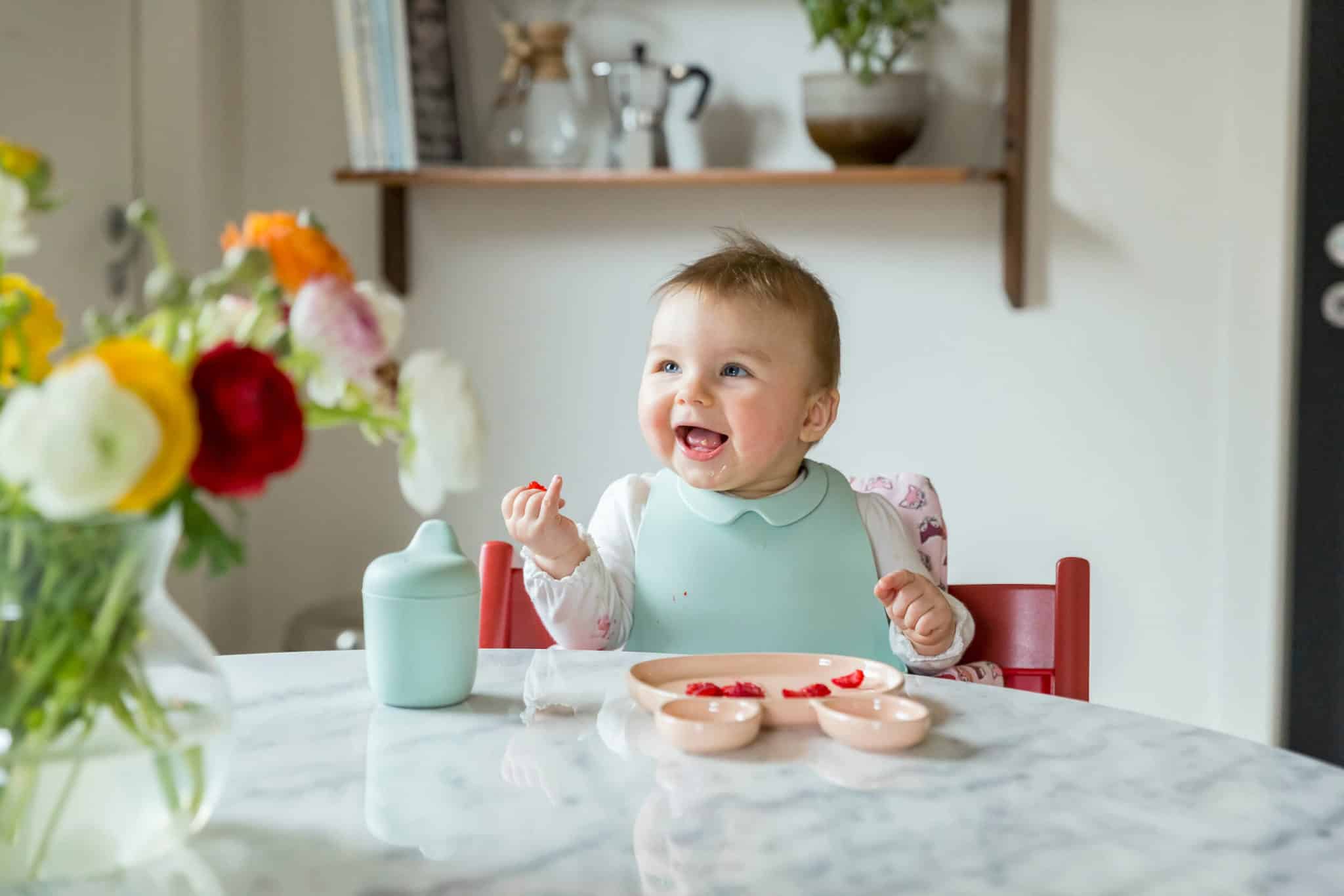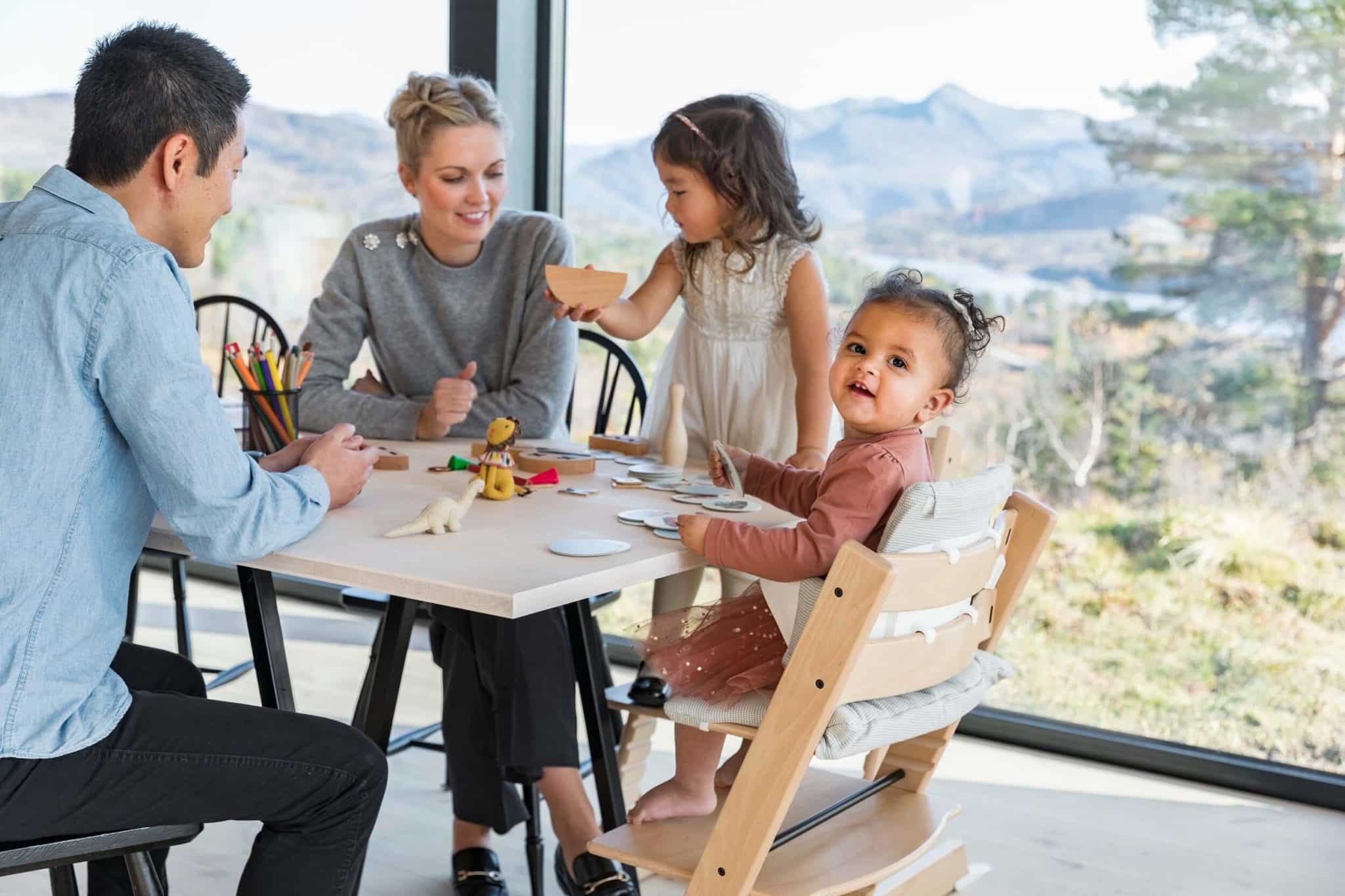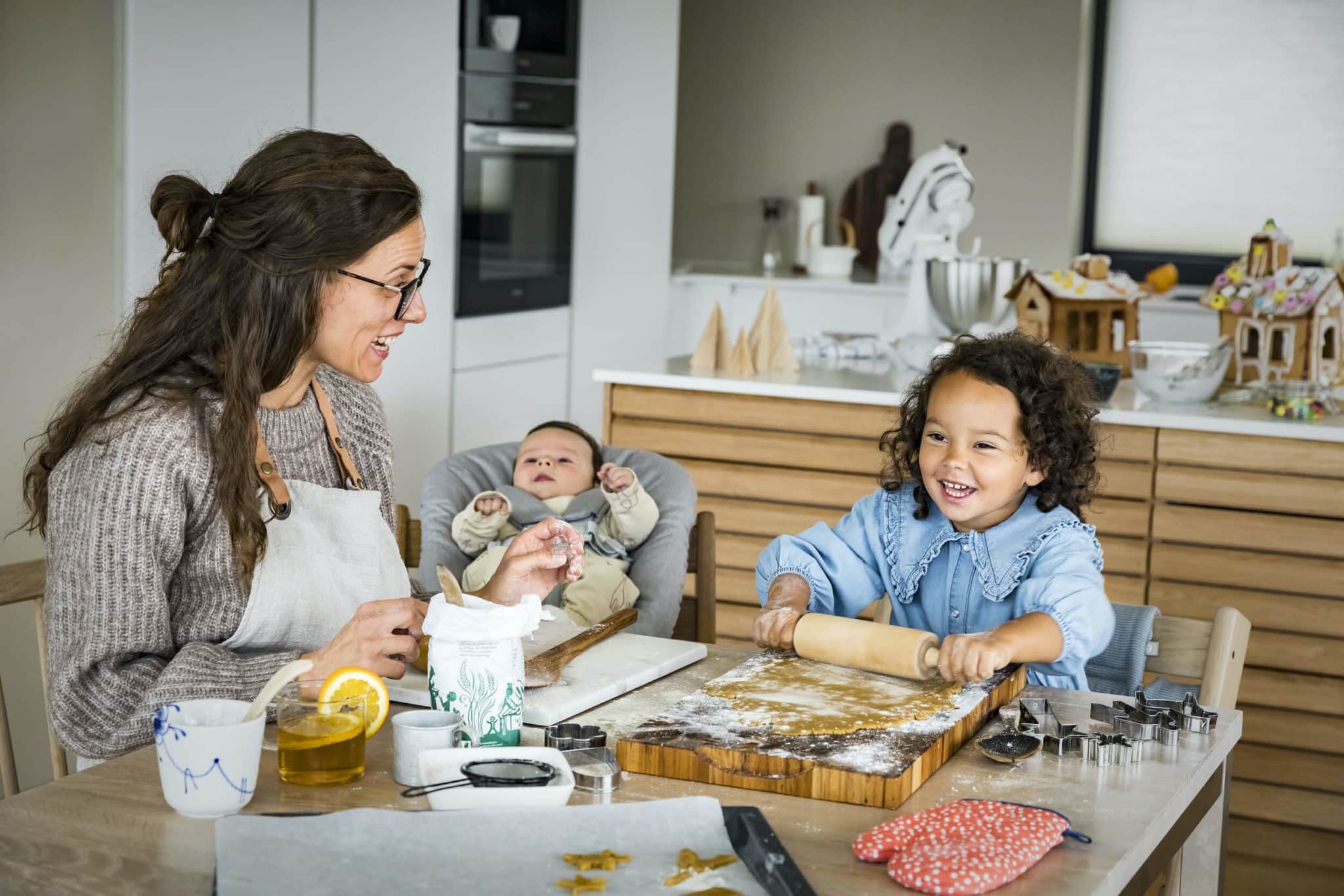Raising confident children: why creating a supportive and nurturing environment right from the word go is so important...
It’s amazing to think that our little ones’ brains have been developing since the very first few weeks after conception! The experiences your little one has and the connections they build in the early years are vital for their brain development as they give them opportunities to communicate, move, and learn more about the world around them. Creating a supportive and nurturing environment right from the word go is so important for raising confident children as it helps our babies’ brains to develop and lays the foundation for them to grow up and become self assured adults.
We have teamed up with trusted parenting brand Stokke, as well as Kate Silverton – broadcaster, child therapist and author of There’s No Such Thing as ‘Naughty’, Charlotte Stirling Reed – children’s nutritionist and author of How To Wean Your Baby, and Kirsti Vandraas, project director of Peter Opsvik AS, to explore the importance of movement, closeness and connection in the early years and find out how it can develop your child’s confidence. Read on for their tips for raising confident children.

Understanding your baby’s brain and how it develops
Your baby’s brain started developing in the womb. It won’t finish developing until the age of 25 – with some research suggesting it could even be as late as age 30! According to Kate Silverton, the early years are a crucial time as our children’s brains are developing so rapidly. She says in her book: There’s No Such Thing as ‘Naughty’:
“Our children are completely dependent upon us for their survival, until their immature brains effectively ‘catch up’. It’s why there is such rapid brain growth in the first few years of life: our children’s brains have to work quickly to achieve the skills and abilities they need to survive and flourish in whatever environment they find themselves in.”
Your baby’s brain develops through use, so it’s important to create a stimulating environment full of things for them to observe and interact with. These interactions will help your little one to learn all of the skills they need to develop confidence – such as talking, moving, listening, thinking, problem solving and socialising.
A nurturing environment also promotes brain development, helping our little ones to feel safe and secure. Kate Silverton says: “our children need to feel connected to us for good future mental health, so lots of play and 1:1 time are crucial.”
Why building closeness and connection is so important for a young child
Building a strong bond and connection with your little one from the word go is so important. The bond between you and your little one is what gives them confidence. If your little one trusts you’ll always be there, then they’ll have the confidence to go off and explore the world. When children start school it’s hard when they run off without looking back! But little ones carry that sense of security wherever they go, even when you are not together.
Learning to trust that you’ll always be there for them is all about building closeness. You can start to think about this before your little one even arrives, by choosing baby equipment that is designed to foster that connection. Kate Silverton says: “the [Stokke] Tripp Trapp® chair is a great way to build connection with your child for eating or play – anything front facing, allowing for eye-to-eye contact and time.”
Celebrating its 50th year this year, she recommends the iconic Tripp Trapp® as it engages “being curious, connection, lots of play, one to one time, which is really critical for good future mental health and confidence. It brings your child right up to the table and at the right height to enjoy time around the table as a family together, learning and developing in those early years.” The newborn attachment for the Tripp Trapp® allows you to bring your baby right up to the table from birth. The Tripp Trapp® is the first highchair that grows with your little one – from the day they are born into adulthood.
You can build the connection with your little one right from when they are in the womb, by talking to them, singing to them and massaging your bump. When your baby is born, respond to their cries by picking them up and giving them lots of cuddles. Being there to give our little ones a hug when they need it gives them the confidence to develop and grow.
"Learning to trust that you'll always be there for them is all about building closeness. You can start to think about this before your little one even arrives, by choosing baby equipment that is designed to foster that connection."

How empowering our children to move builds self esteem
Giving our little ones independence helps to boost their confidence and build up a child’s self esteem. Babies have a natural desire to learn and explore. It’s important to encourage curiosity and give little ones opportunities to be active and learn through play and physical interaction. This will help your child to gain confidence, and set up healthy habits that will last into adulthood.
Kirsti Vandraas, one of the leading ergonomists in the area of sitting and design of seating solutions, says: “That is the genius of the iconic Tripp Trapp® chair. Adjustability and the design of the chair allow the child freedom of movement, good working heights and interaction with others. Children bounce around and thus need a solid base that enables them to move in the way they do.”
Moving and being active helps little ones to develop motor skills. This allows them to explore their surroundings – which helps them think and learn and grow in confidence.
The importance of family mealtimes
According to Kirsti Vandraas, ‘life around the table’ is an important part of our upbringing and building confidence. She says: “The child becomes part of a group, either at home or in childcare. On a Tripp Trapp® chair, smaller children sit on a higher seat than the taller ones, and this lessening of height differences, improves interaction between children and adults.”
She continues: “The Tripp Trapp® chair gives them the ability to get in and out of the chair themselves. Thus, making them more independent and raising their confidence. Furthermore, by bringing the child to the table at the same level as others in that group, the children can learn from their surroundings and feel connected with others.”
Family mealtimes are also an important part of your child’s routine. Knowing what to expect helps little ones feel safe, confident, and in control of their world. When little ones know what will happen next, they can focus on playing, learning and building their connection with you.

"That is the genius of the iconic Tripp Trapp® chair. Adjustability and the design of the chair allow the child freedom of movement, good working heights and interaction with others." – Kirsti Vandraas
Why mealtime environment is so crucial for raising confident children
Charlotte Stirling Reed, children’s nutritionist and author of How To Wean Your Baby, focuses on nutrition and feeding and how mealtime environment can help us to raise confident children. She explains the importance of commensality: the aspect of eating together with family and friends and conviviality: the social aspect of eating, including socialising during meals and the pleasure of sharing meals and dishes together.
She says: “This is why the Tripp Trapp® is great, it brings children to the table allowing them to participate in the social act of eating together and experience the joy of sharing meals, at the same time exposing them to more types of food. Thereby, improving their relationship with food and allowing them to be more confident in their decisions about food.”
Charlotte also highlights the importance of role modelling and parental confidence. She says “If you’re not enjoying mealtimes (and letting them see you enjoy it), how will they learn to enjoy it too?”. Little ones learn by watching body language and imitating the people around them. Parental worry can be interpreted by little ones as a vote of no confidence. If you remain calm, and model confidence, then they are more likely to feel safe and confident as well.
What you can do with your little one to promote self confidence
Age appropriate activities are great for building confidence, as it makes little ones feel good when they are able to achieve success. Toys and activities that are way beyond their skills, will make them feel frustrated and striving to meet advanced age expectations will only reduce confidence. So look for new or challenging things that are appropriate for your child’s ability.
Letting children practice doing things by themselves will also nurture confidence. Find activities that don’t require too much assistance and give your little one autonomy. For example, give your little one the control at mealtimes – let them feed themselves and choose the portion size, what they’re eating and how much mess they make! Give your little ones lots of encouragement too (without putting too much pressure on them). If they are scared to fail for fear of parental criticism, they’ll never try new things.
You can also help your little one to explore their interests in different ways, so they are able to practice their skills. Finding out about how things work helps your little one build confidence. Making mistakes builds confidence too as one of the ways babies develop self worth is by overcoming new challenges.
The most important thing though is to be a safety net for our little ones. We want them to have the confidence to go out into the world, explore, make mistakes, and know that they can always come back to us.
She recommends the Tripp Trapp Chair as it engages “being curious, connection, lots of play, one to one time, which is really critical for good future mental health and confidence. It brings your child right up to the table and at the right height to enjoy time around the table as a family together, learning and developing in those early years.”
Read more parenting advice here




COMMENTS ARE OFF THIS POST